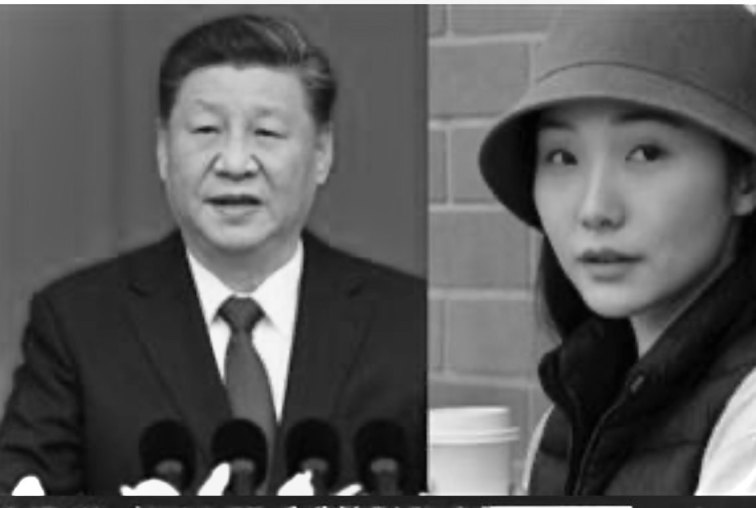Since mid-January 2025, hundreds of thousands of U.S. TikTok users have flocked to the Chinese social media platform Xiaohongshu (RedNote). (Screenshot composite / Dajiyuan)
[People News] The Chinese Communist Party maintains strict control over online speech, and the practice of 'literary inquisition' has become commonplace. Whenever someone crosses the red line, social media platforms like WeChat, Douyin, and Xiaohongshu often see accounts being banned. Recently, the Douyin platform in China has seen a surge in 'group live streaming' among people of all ages, where a Taiwanese netizen used the homophone 'static screen' to parody Xi Jinping. This led to the immediate banning of the term 'static screen' and the closure of the live streaming room.
'Group live streaming' involves several young male or female streamers who continuously sing and dance in front of the screen to the melody and choreography of the Chinese brainwashing song 'Car Song.' If an audience member pays, they can have the streamers shout out their name. This trend is not only popular among young people but has also attracted a significant number of middle-aged and elderly viewers.
For instance, the highly popular girl group 'SK Moon Lake 217' incorporates names specified by the audience into their lyrics, drawing in many viewers. According to a report by the Taiwan Liberty Times, some Taiwanese netizens recently discovered this interactive live streaming and not only watched it on Douyin but also creatively used homophonic puns to 'counter the unification war.'
Some Taiwanese netizens chose to input the names of Taiwanese political figures such as President Lai 'Ching-te, People's Party Chairman Huang 'Kuo-chang,' and former People's Party Chairman Ko 'Wen-je.'
Netizens have also demonstrated the "homophonic spirit" of Taiwanese people by entering the two characters "靜屏" (Jìngpíng), which phonetically resemble Xi Jinping's name. This led many Chinese Douyin streamers to shout phrases such as "Jìnpíng hush, don’t speak," "Got you, Jìnpíng," and "Jìnpíng, come here, sit down." However, Douyin quickly classified the name "靜屏" as a "prohibited term on Chinese internet platforms," resulting in the forced closure of these live streaming rooms.
Under Xi Jinping's leadership, the space for freedom of speech has significantly diminished. A few years ago, a Japanese mobile game company faced backlash on Weibo when it removed the character "翠" (Cuì) from the name of an anime character, which sparked discussions. This character was suspected of being a veiled reference to "習習卒" (Xí Xí zú), meaning "Xi Jinping dies twice," leading to a total ban on the character "翠" on Weibo.
In an even more extreme case, individuals who closely resemble Xi Jinping may also be banned.
Liu Keqing (劉克清), a well-known Chinese baritone singer based in Europe, has encountered frequent warnings or account suspensions on various Chinese social media platforms due to his natural resemblance to Xi Jinping. The reasons given all claim that he has a "non-compliant appearance," which has caused him significant distress.
On May 22, Liu Keqing shared an article titled "The Trouble with My Face" in his friend circle. He recounted his experiences over the past five years, during which he had to continuously change his profile picture due to being labelled as having a "non-compliant appearance," resulting in a sharp decline in his income. He expressed that, due to his family's financial difficulties, he hoped to earn money by selling vocal lessons through online live streaming, but he has been banned from streaming on several major platforms due to his appearance and is unsure of what to do next. △









News magazine bootstrap themes!
I like this themes, fast loading and look profesional
Thank you Carlos!
You're welcome!
Please support me with give positive rating!
Yes Sure!